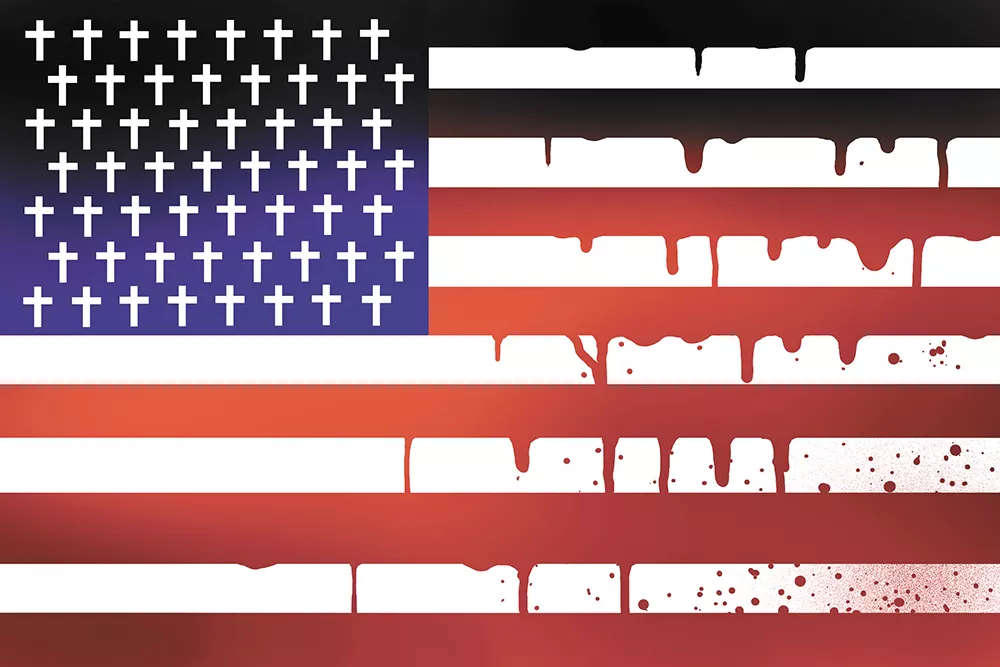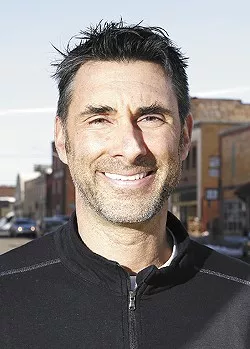On April 20, 1999, I was inside Columbine High School the day the shooting began. Upon hearing the gunfire, a janitor and a teacher and coach named Dave Sanders (who would tragically lose his life) ran through the cafeteria yelling, "Get down, get down!" All 500 of us sat under tables while sporadic gunfire took the life of Rachel Scott.
Some amazing acts of courage happened inside the halls of Columbine that day. One of my favorite examples of this unbridled courage was a student athlete and star football player named Evan Todd who was trapped inside the library when the gunmen entered to steal the lives of multiple students. Once the gunmen left the library, Evan was left with shrapnel in his upper shoulder, laying on the ground hoping he would miraculously survive the tragedy. Realizing the gunmen had left the library, Evan knew this was his chance to escape. He picked his body off the floor and spotted a door leading to the main hallway, which would allow him to eventually make his escape from Columbine. He noticed out of the corner of his eye a fellow student named Mark Kintgen who also was also trying to leave the library but was moving slowly as a result of his cerebral palsy. Evan was faced with a momentous decision no 15-year-old should have to make: Would he run, or go back for Mark?
Evan opted to risk his life by going over to Mark, picking him up, and literally carrying him to safety. These are just a few of the amazing acts of courage often lost in the endless coverage of ideologies and manifestos of the gunmen.
Every shooting has a hero, yet we give the headlines to the perpetrator. The tragedy behind the tragedy of Columbine is that most every world citizen can effortlessly repeat the name of the Columbine gunmen, but very few can name a victim or a hero from that day.
While the FBI and other experts are trying to crack the code of the mindset of the shooters, we know some things about human behavior that are relevant to this discussion.
Mounds of research points to these shooters' desire for significance. Last week, two mass shootings happened in our country and in one of the shootings, the gunman specifically stated he knew his manifesto would be published. This particular gunman also talked about the level of fame that would accompany the publishing of his manifesto. Unintentionally, we are willfully distributing the fame these terrorists crave by highlighting their names and manifestos they leave behind.
The discussion about how to curtail school shootings (including mass shootings) has been repeated like a familiar song on the radio. The same passionate ideas come to the fore around the implementation of metal detectors in schools, strengthening and broadening the mental health systems, and arming teachings and/or resources officers, accompanied by stricter gun laws in the hopes of restricting access to firearms. Seemingly, society desperately hopes for a panacea that will put an ultimate stop to these senseless acts of violence. But one does not exist. Instead, our dialogue needs to broaden. Ideologies need to be suspended, blame needs to cease, and curiosity needs to supplant judgmentalism.
There is one important course of action we can take. My plea to each of us and to all major media outlets is to discontinue the distribution of the shooters' identities and thus flip the narrative. Each time a shooter's name is mentioned, that shooter has accomplished one of their goals.
The shooters obviously thrive off this attention and endless evidence points to this fact. While finding the correct course of action may take considerable time, we can at least begin by erasing the names of these terrorists. The shooter can still be discussed, and motives explored, without giving them the unnecessary attention of personally identifying them.
The very notion of removing their name also removes their voice. Let's give voice to the heroes and the victims, not the villains. #removethefame ♦
Kevin Parker is an entrepreneur and teaches leadership and business courses at Whitworth University. Previously, he served as a Republican state representative for the 6th Legislative District.


